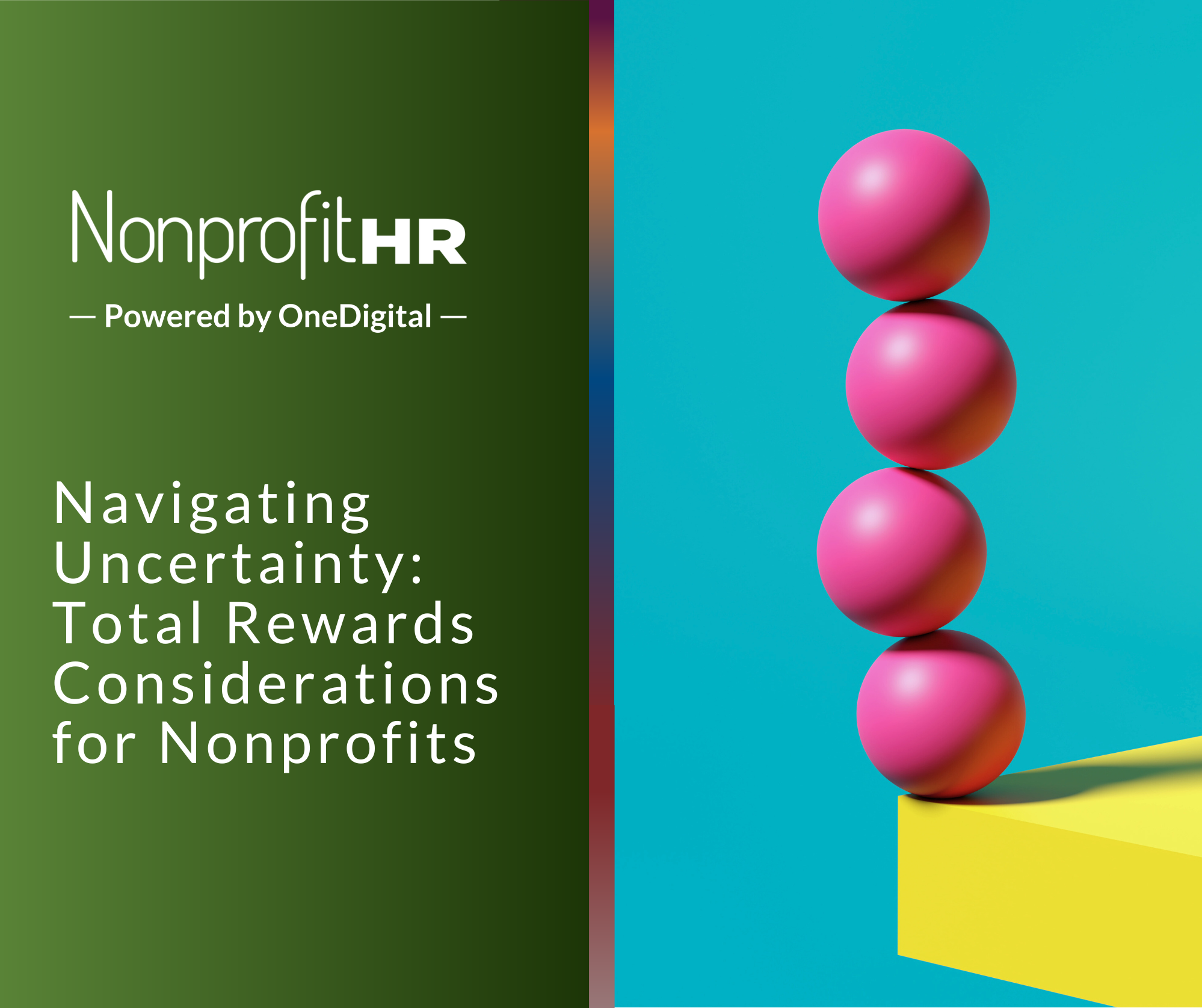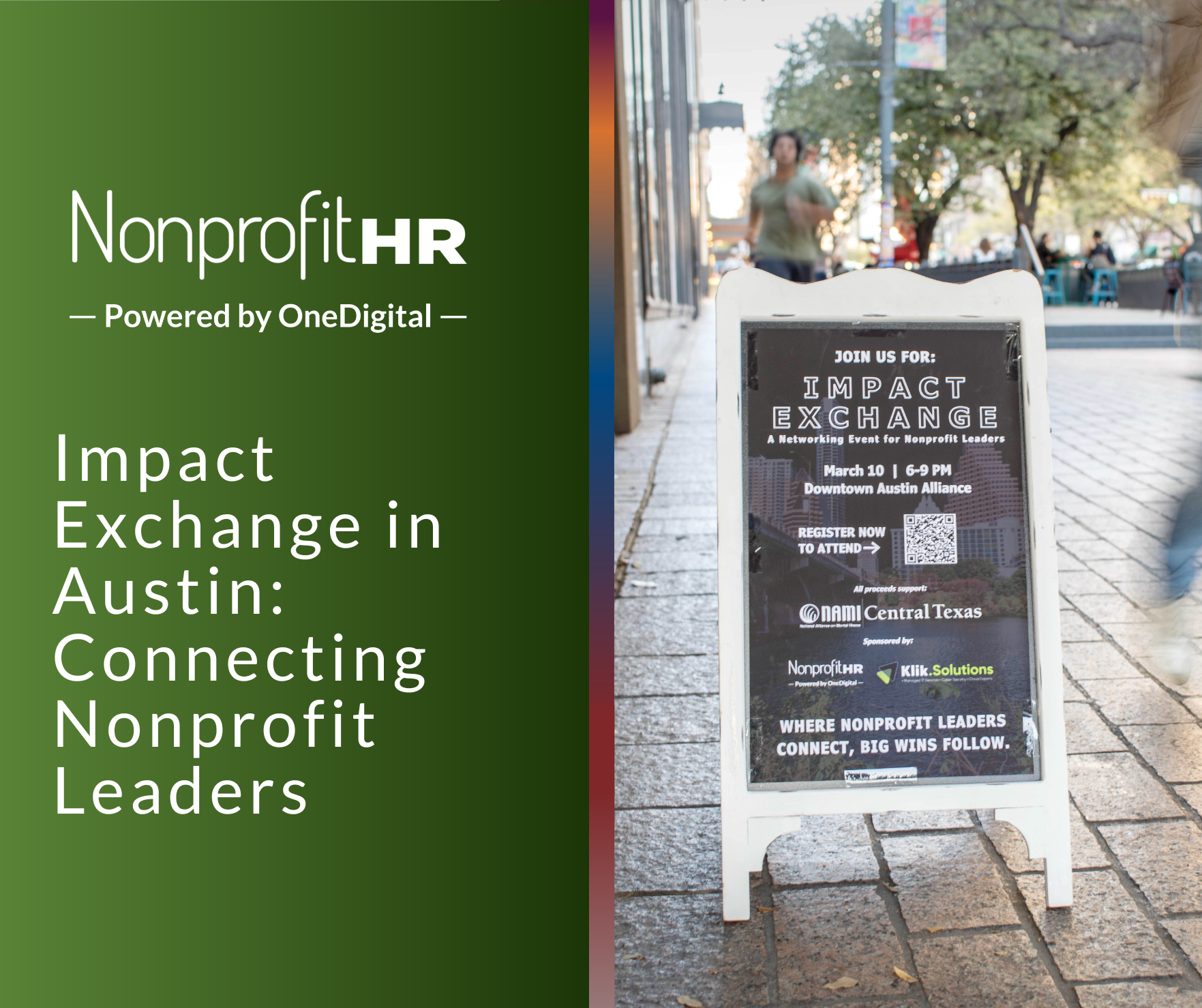WTOP: 5 ways nonprofits can…
In the face of growing opposition to diversity, equity, inclusion and belonging (DEIB) initiatives within corporate America, it’s crucial for social enterprises to stand firm in their commitment to these values. At Nonprofit HR, we understand the importance of integrating DEIB into the fabric of our organization, not just as a business strategy but as a core element of our mission to drive positive social impact.
The Role of Social Enterprises in Advancing DEIB
Social enterprises occupy a unique space between the corporate and nonprofit sectors. We are mission-driven yet operate within the dynamics of the business world. This dual identity gives us both the opportunity and responsibility to lead by example, demonstrating that DEIB is not only good for business but also essential for achieving meaningful social change.
At Nonprofit HR, we’ve seen how DEIB enhances our ability to serve clients across the nonprofit and social impact sectors. Our work is rooted in the belief that diverse perspectives lead to better outcomes—whether we’re advising organizations on talent management or helping them navigate complex challenges. By fostering an inclusive environment, we empower our team to bring their full selves to work, which in turn strengthens our impact on the organizations we support.
Why DEIB Matters More Than Ever
The recent backlash against DEIB, such as the controversial pushbacks faced by companies like John Deere and Harley-Davidson, is deeply concerning. This opposition threatens to undo progress made in creating more equitable workplaces. However, it also underscores why DEIB is more important than ever. In a world where inequality and injustice, such as racial disparities in healthcare, education and wage gaps, remain pervasive, social enterprises must continue to champion diversity, equity, inclusion and belonging as fundamental to our work.
As of early 2024, the legislative landscape regarding DEI initiatives at public colleges has become increasingly restrictive. According to the Chronicle of Higher Education, a total of 82 bills have been introduced across 28 states and Congress since early 2023. These bills aim to limit or eliminate DEI efforts, with some already having been signed into law. This legislative trend is a stark reminder of the challenges DEIB initiatives face, highlighting the need for social enterprises to remain steadfast in their commitment to these values.
Research from organizations like McKinsey & Company shows that organizations with strong DEIB practices are more innovative, resilient and better positioned to navigate challenges. For social enterprises, these benefits are critical to our success. By embedding DEIB into our organizational culture, we enhance our ability to achieve our mission and set a standard for other businesses to follow.
3 Steps Social Impact Executive Leaders Can Take to Advance DEIB
1. Assess Your Organization’s Current State of DEIB
Begin by evaluating where your organization stands in terms of DEIB. This involves collecting data on diversity within your workforce, assessing current policies and understanding the experiences of your employees. An assessment should be conducted regularly — at least annually — to identify gaps and areas for improvement, laying the foundation for a more strategic approach to DEIB.
2. Integrate DEIB into Leadership Development
Ensure that your leadership development programs include a strong focus on DEIB principles. This can involve training leaders to recognize and mitigate unconscious bias, fostering inclusive leadership styles and ensuring that DEIB is a key consideration in decision-making processes. When leaders are equipped with the tools to champion DEIB, the positive impact on the employee experience and organizational culture is profound. When employees feel seen, heard and valued for their unique contributions, their sense of belonging within the organization deepens. This, in turn, leads to higher levels of job satisfaction, increased loyalty, and a greater willingness to go above and beyond in their roles.
Engaged employees are more likely to be productive, creative and committed to the organization’s mission. They bring their full selves to work, which fosters innovation and drives better outcomes. Moreover, inclusive workplaces reduce turnover rates, as employees are more likely to stay with organizations where they feel respected and appreciated. This not only benefits the employees but also strengthens the organization by retaining top talent and building a cohesive, motivated workforce.
3. Establish Clear Accountability Measures
Set measurable goals for DEIB and hold executive leaders accountable for progress. This can include tying DEIB outcomes to performance evaluations and incentivizing leaders to prioritize these efforts. Transparency in reporting on DEIB goals and progress builds trust within the organization and across all stakeholder communities, and demonstrates a genuine commitment to these values. For example, some organizations have established DEIB councils to ensure continuous oversight. Additionally, consider partnering with an external consultant to gain an objective perspective and enhance internal capability.
Leading the Way Forward
As leaders within the social enterprise sector, we have a responsibility to advocate for DEIB both within our organizations and in the broader business community. This means not only implementing DEIB initiatives but also speaking out against efforts to roll back these essential practices within our local communities and nationwide. We must lead by example, showing that DEIB is not just a set of policies but a cornerstone of sustainable and impactful business.
The current climate presents both challenges and opportunities for social enterprises. As we continue to navigate this changing landscape, let’s ensure that our commitment to DEIB remains unwavering. By doing so, we can drive positive change in our organizations, influence the broader business community, and ultimately contribute to a more just and inclusive society.
Lisa Brown Alexander
Founder & CEO
Nonprofit HR
View Lisa’s bio.






























